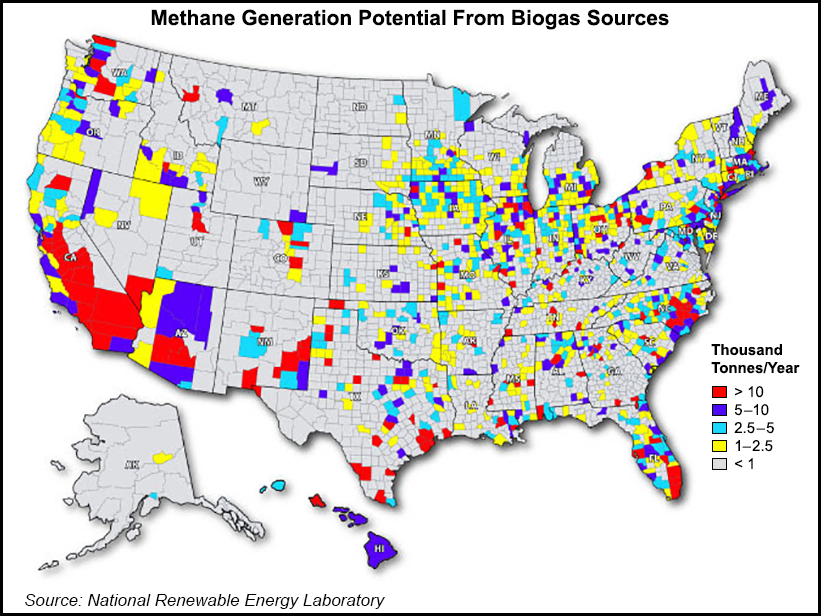Regulatory | NGI All News Access
RNG, Electrification Pushed by California Utilities
California’s major energy utilities have shifted their emphasis to renewable natural gas (RNG) and electrification in the transportation sector.

Sempra Energy gas utilities Southern California Gas Co. (SoCalGas) and San Diego Gas and Electric Co. issued a joint draft request for proposals for dairy biomethane, or RNG, pilot projects, as did Pacific Gas and Electric Co. (PG&E) and Southwest Gas Corp. The program was created by state SB 1383 to create a network of biogas projects.
Proposed projects would be jointly selected by the California Public Utilities Commission (CPUC), the California Air Resources Board and the state’s Department of Food and Agriculture (CFDA) using a greenhouse gas emissions-reducing and cost-effective business model.
“Dairy biogas development is rapidly increasing in California with help in part from $35 million in grant funding last year from the CFDA,” said a Sempra spokesperson. The CFDA is expected to provide an additional $61-75 million this year for up to 40 proposed projects. Longer term, the state expects to have 120 projects operating by 2025.
“RNG with its ability to turn methane emissions into a source of energy is a critical element of a comprehensive approach to climate change.” said SoCalGas’ Lisa Alexander, vice president for customer solutions and communications.
Officials at the other gas utilities expressed similar bullishness toward the biogas projects, citing their ability to capture methane waste emissions and make them useful.
“The capturing, transformation, and utilization of methane emissions as a clean fuel source will have significant environmental benefits,” said PG&E’s Christine Cowsert, gas operations director.
A workshop and webinar on the joint solicitation proposals is scheduled Wednesday (Jan. 31) in Sacramento.
In related news, the Ohio Environmental Protection Agency is funding a $5 million grant program to help underwrite converting medium-duty vehicles to run on compressed natural gas and liquefied natural gas. Vehicles eligible must have alternative fuel vehicles already registered to operate on the state’s public highways.
© 2024 Natural Gas Intelligence. All rights reserved.
ISSN © 1532-1231 | ISSN © 2577-9877 |
